Features
Runnin' Down A Dream
Tom Petty Albums Ranked Worst to Best
by Jason Warburg
Legend has it that it took 100 takes in the studio before Tom Petty was satisfied that he and the Heartbreakers had done full justice to “Refugee,” the leadoff track on 1979’s Damn The Torpedoes. The song turned out to be their breakthrough, the single that lit a rocket under their until-then gradual transformation from regional up-and-comers into breakout national stars.
I like to think that stubbornness wasn’t so much about perfectionism as a determination to get the most you can out of the materials you have to work with. That always seemed to be the Petty ethos, right down to the way he employed his drawling, reedy voice and a band full of hometown buds from Gainesville, Florida to craft some of the most compelling rock songs of the past 40 years. It was all about making the absolute most you could out of what you had to give.
That same spirit set me off on an odyssey when Petty died. I couldn’t just crank out one of our rankings columns without revisiting a few of the nooks and crannies of the man’s catalog that I’d never spent much time with, to wit: Southern Accents and Let Me Up (I’ve Had Enough) and The Last DJ. I even gave Highway Companion and Echo and Songs and Music From “She’s The One” another spin each before sitting down to write these words. Tom made me do it, because, at his best, he was just that charismatic of a musical personality—and he was at his best a lot.
In addition to the standard rankings, I’ve singled out tracks “Worth Checking Out” for each album, because an artist as prolific as Petty inevitably left some gems somewhat hidden amongst the better-known material on his albums.
Finally, let’s be clear: even the quote-unquote “worst” album here is worth a listen just for the quality of songwriter Petty’s craft when he nails one. The man had a gift for expressing ideas in deceptively simple language that still left deep marks on his listeners’ souls. Even when the total package of an individual album didn’t feel like it quite lived up to his abilities, there was always a moment or two on it that you didn’t want to miss. 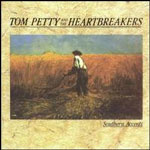 16. Southern Accents (1985)
16. Southern Accents (1985)
As was the case with so many ’70s rockers, the ’80s were not kind to Tom Petty’s sound. Southern Accents was fated to be a mish-mash regardless, half an album’s worth of rather Springsteenesque songs about the South paired up with three tracks featuring the Eurythmics’ Dave Stewart stirring the musical pot. But what ultimately dooms this disjointed jumble of an album is the awful, spiky, trebly, over-compressed production and mix; it’s hard to make a great rock album when your snare drum sounds like someone hitting a pile of wet tin foil. Worth Checking Out: “Make It Better (Forget About Me)” is the second-most successful Stewart track here (after the big single “Don’t Come Around Here No More”), a frothy r&b number with a snappy horn section.
15. Let Me Up (I've Had Enough) (1987)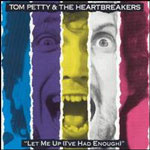
After Southern Accents proved to be a musical dead end, Petty and the Heartbreakers got an offer from Bob Dylan to tour as his backing band. The experience seemed to pull them out of their post-Accents funk, but also to wear them out. While Let Me Up (I’ve Had Enough) is a step back in the right direction, it still suffers from tinny ’80s production and relatively uninspired songwriting and performances. Worth Checking Out: The catchy, sassy “Think About Me” and the back-to-their-edgy-roots title track locate some of the fire that’s missing elsewhere.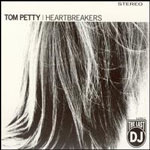 14. The Last DJ (2002)
14. The Last DJ (2002)
Others rank this album as the worst studio outing of Petty’s career. The thing is, once you get past the four songs Petty devotes to excoriating the corporatization of rock (a fine sentiment for an op-ed piece, but not so compelling in musical form), there are some strong deep cuts here. If only TP had taken a breath, dialed back on the vitriol and left the truly awful “Joe” on the novelty trash heap where it belongs. Worth Checking Out: The thoughtful ballad “Dreamville” and the Dylan-styled “Have Love Will Travel” are superb, and the country-folk story-song “Blue Sunday” shimmers along.
13. Echo (1999)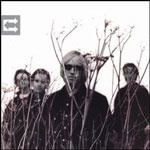
TP’s divorce album is a downbeat affair from start to finish; even the one big rock number “Free Girl Now” feels dour and a bit forced. That said, no album that leads off with the magical, moving, altogether stellar “Room At The Top” could be considered a failure; it’s one of the highlights of the second half of the man’s career. Worth Checking Out: The Band-flavored “Lonesome Sundown” and the spacious, mid-tempo “Swingin’” show some life, and ace guitarist Mike Campbell shines on the closing “One More Night, One More Day.”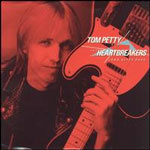 12. Long After Dark (1982)
12. Long After Dark (1982)
Long After Dark is a transitional album in a sense—the transition between the Heartbreakers’ tremendous opening salvo of four terrific albums and the mid-’80s career trough that followed. While the songs and playing remain solid, everything about this album feels less inspired than what preceded it, and ’80s rock production rears its ugly head as Stan Lynch’s drums get tinnier, the synths become more prominent, and everything gets more compressed and glossier. Worth Checking Out: “Deliver Me,” “Change Of Heart” and “Finding Out” offer flashes of the fire that made the Heartbreakers such a special unit, and I’ve always thought “A Wasted Life” was one of their finer ballads.
11. Into the Great Wide Open (1991)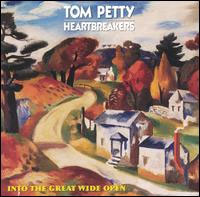
On a roll after his solo debut Full Moon Fever and supergroup smash The Traveling Wilburys, Petty brought both albums’ sonic mastermind Jeff Lynne into the studio to make a fresh band album with the Heartbreakers. The results were decidedly mixed; while there are some strong songs here, Lynne’s distinctively crisp production style sands all the edges off the Heartbreakers, leaving them sounding more like a faceless session band than the edgy, hungry group that made Damn The Torpedoes. Worth Checking Out: Beyond the two big singles (“Learning To Fly” and the title track), favorites here include the urgent “Out In The Cold,” the steady-building “You And I Will Meet Again,” and the feisty “Makin’ Some Noise.”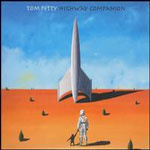 10. Highway Companion (2006)
10. Highway Companion (2006)
Petty’s final solo album is a showcase for the veteran songwriter’s craft and consistency. There’s nothing flashy here—chugging Texas-boogie opener “Saving Grace” is as close as this album gets to rocking out—but the often-reflective songs are rich with insights about the roads TP traveled, with tracks about finding peace of mind (“Square One”), time catching up (“Flirting With Time”), and his Florida roots (“Down South”). Worth Checking Out: “Big Weekend” feels like a Wilburys leftover (and why wouldn’t it, with Jeff Lynne producing) and offers the album’s topic sentence: “If you don’t run you’ll rust.” And “Night Driver” is 4:28 of pure smoky after-midnight atmospherics as only latter-day TP can deliver.
9. Songs And Music From “She's The One” (1996)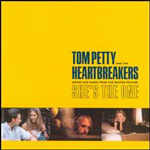
The mother of all sleepers in Petty’s lengthy catalogue, this record, nominally a soundtrack for the long-forgotten Jennifer Aniston film She’s The One, is a beautiful mess, an album that veers from soaring guitar-pop (“Walls”) to trashy garage rock (“Zero From Outer Space”) to a stunning folk-tinged ballad (“Angel Dream”) to credible covers of both Beck (“Asshole”) and Lucinda Williams (“Change The Locks”). It all works because Petty and the Heartbreakers sound great: energized, tastefully produced, and ready to run like the rock and roll thoroughbreds they were. Worth Checking Out: On what’s nearly an entire album of hidden gems, I’m partial to “Angel Dream,” the muscular, emphatic “Climb That Hill,” the tight, snarly “Hope You Never,” and the Beatles homage “Hung Up And Overdue” (complete with Ringo on drums).
Intermission: A Hat Tip To The Heartbreakers
Here at the halfway point, let’s take a moment to pay tribute to one of the finest backing bands in rock and roll. Mike Campbell (guitars) and Benmont Tench (keyboards), who started playing with Petty in 1970-71, are simply two of the very best there is, consummate pros whose melodic lines and superb, ever-tasteful solos are as distinctive in their own ways as Petty’s voice. On bass, Ron Blair (1976-1981, 2002-2017) and Howie Epstein (1981-2002) both provided essential, underrated melodic support, forever locked in the groove. Founding drummer Stan Lynch (1976-1994) drove the early Petty catalogue with his fiery, muscular playing, while his successor Steve Ferrone (1994-2017) brought flexibility and groove to the role. Both together and separately, Lynch and Epstein contributed strong harmonies, filling out the band’s vocal sound, as did Scott Thurston (1991-2017), an invaluable multi-instrumentalist / utilityman in the band’s later incarnations. As a unit, the Heartbreakers provided Petty’s musical foundation, supporting forays from their core classic rock roots into blues, Americana, folk and even a jazzy ballad or two, as tight and versatile a backing band as any in rock history. 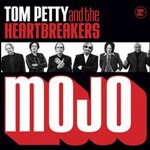 8. Mojo (2010)
8. Mojo (2010)
The album on which Tom Petty and the Heartbreakers literally got their mojo back. With some having written them off after 2002’s fatally flawed The Last DJ and the subdued 2006 TP solo disc Highway Companion, the band took their time crafting what turned out to be their strongest disc in decades, an album-long excursion into blues-rock that’s rife with powerhouse riffs, soaring jams, sassy Hammond organ, and heartfelt ballads. Worth Checking Out: “I Should Have Known It” is the best Led Zeppelin tune Petty and Campbell ever wrote, “No Reason To Cry” is a knockout ballad, and the epic-scaled “First Flash Of Freedom” is the song that, for me, uncovered the long-lost connection between Cream and Yes.
7. Hypnotic Eye (2014)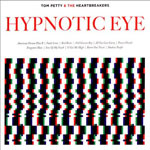
Any rocker worth his salt dreams of going out on a high note. TP and band surely did with Hypnotic Eye, an album that comfortably merges all of Petty’s varied musical identities into a coherent whole, and then dials the guitars all the way up. “Like a fool, I’m bettin’ on happiness” he snarls on the alternately driving and soaring opener “American Dream Plan B,” before delving into hard-edged boogie on the powerhouse “Fault Lines” as Campbell’s guitars growl and cry. Worth Checking Out: On one of the band’s stronger albums, other standouts include the jangly, grooving “All You Can Carry,” the rockabilly-fueled “Forgotten Man,” and the churning, catchy “Red River.” 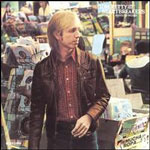 6. Hard Promises (1981)
6. Hard Promises (1981)
One thing about Petty—he’s often been at his best when seriously pissed off. After a three-year battle with his label that included declaring bankruptcy to void his contested contract and withholding this album to until MCA agreed not to gouge his fans with their new “premium pricing” plan, Hard Promises arrived and promptly lived up to its name, from magnificent opener and lead single “The Waiting” through a tracklist that aims for his Damn The Torpedoes pinnacle and doesn’t fall far short. Worth Checking Out: “Kings Road” soars, “Nightwatchman” and “Something Big” are two of Petty’s better character-driven songs, and “A Thing About You” is full of trademark TP punch and charm.
5. You're Gonna Get It! (1978)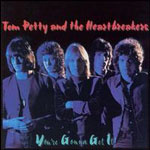
A lot of factors go into rankings, but the one that comes into play here is the most individual and idiosyncratic of all: sentiment. You’re Gonna Get It! was the first TP album I ever owned and I wore my vinyl copy out, engaging in a particularly torrid love affair with side two’s tremendous lineup of “I Need To Know” / “Listen To Her Heart” / “No Second Thoughts” / “Restless” / “Baby’s A Rock ’N’ Roller.” Side one is less memorable, it’s true, but much like TP, sometimes I just don’t give a shit what anyone else thinks. Worth Checking Out: As phenomenal as the two big singles are, their successors on side two—the gripping, acoustic “No Second Thoughts” and coiled, dangerous “Restless”—are barely a step behind. (And if you don’t sing along to the chorus every time you hear “Baby’s A Rock ‘N’ Roller,” I don’t think we can hang out anymore.)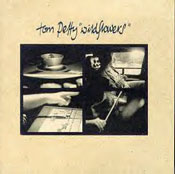 4. Wildflowers (1994)
4. Wildflowers (1994)
A solo album in name only—it features every Heartbreaker active at the time other than Stan Lynch, who was on his way out—Wildflowers is among the man’s best. Teaming with Rick Rubin and perpetual partner in crime Mike Campbell, Petty crafted a 15-track opus that’s both stripped-down and sumptuous, ranging from the lilting folk-rock title track to sinuous bar-blues “You Don’t Know How It Feels,” thundering rocker “You Wreck Me,” and the elegant piano-and-orchestra closing ballad “Wake-Up Time.” While some filler creeps in during the second half, this remains one of Petty’s strongest collections. Worth Checking Out: Beyond the aforementioned big four, personal favorites include the road-worn spirit of “Time To Move On,” the warm, familiar jangle of “A Higher Place,” and the intense Petty-Campbell acoustic guitar duet “Don’t Fade On Me.”
3. Tom Petty & the Heartbreakers (1976)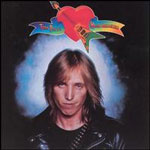
One of the great debut albums of the 1970s, Tom Petty & the Heartbreakers manages to be both of its time—the era when punk was exploding and if you weren’t angry and sneering, no one in LA would come to your show—and timeless. Raw and untethered as it sometimes feels, it also features not one but two stone classics in “Breakdown” and “American Girl,” with secondary tracks that groove hard (“Rockin’ Around With You”) while also showing a sentimental and rather cinematic side (“The Wild One, Forever”). Worth Checking Out: You can’t beat “Anything That’s Rock ‘N’ Roll” for simple fun, and “Fooled Again (I Don’t Like It)” features one of TP’s grittiest vocal performances.
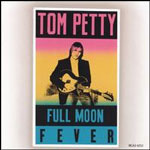 2. Full Moon Fever (1989)
2. Full Moon Fever (1989)
The ’80s were a rough decade for Tom Petty, until they weren’t. After touring behind Bob Dylan in 1986, he teamed with Dylan, George Harrison, Roy Orbison and Jeff Lynne to form the Traveling Wilburys in 1988, and seemed to rediscover his songwriting mojo (there’s that word again). Taking Lynne and Mike Campbell into the studio, he proceeded to crank out this landmark album, studded with immortal hits like “Free Fallin’,” “I Won’t Back Down,” and “Runnin’ Down A Dream.” Yes, there’s some filler in the second half, but even it is above average on this terrific disc. Worth Checking Out: The surging rocker “Love Is A Long Road” sometimes gets lost among this album’s hits, as does the plaintive ballad “A Face In The Crowd,” but my personal fave is Petty’s salute to his roots, a spot-on cover of the Byrds’ “Feel A Whole Lot Better.”
1. Damn the Torpedoes (1979)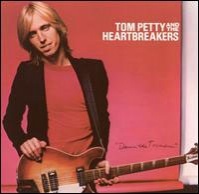
The title reflects an attitude Petty had just finished putting on full display, calling MCA's bluff by declaring personal bankruptcy in order to void his own contract after they refused to renegotiate. Was the young, still-proving-himself artist overconfident? The emphatic answer came in the form of this career-making #2 album, which spun off no less than three hit singles (“Refugee,” “Here Comes My Girl,” and “Don’t Do Me Like That”), featured an album track so essential to the band’s story that it made the cut for their 1992 single-disc Greatest Hits collection (“Even The Losers”), and lacks the slightest hint of filler. This is quintessential Tom Petty & The Heartbreakers: dynamic, driving, heartfelt, eloquent, and viscerally alive. Worth Checking Out: Fans know every song here by heart already, but I’ll put in a plug for the beautiful “Louisiana Rain,” the surging “Century City,” and one of the most perfect rock songs ever written, the aforementioned “Even The Losers.”
[Also, here's a tribute to TP -- Tom Petty: Making Magic.]